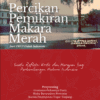The practice of serving court documents within the Indonesian jurisdiction is generally outlined under the legal framework of civil procedures stipulated in Het Herziene Inlandsch Reglement (HIR), Rechtreglement voor de Buitengewesten (RBg), and Reglement of de Burgerlijk Rechtsvordering (Rv). In Indonesia, court documents such as summons and statement of claims are served by delivering the documents to the registered legal domicile of the parties.
Under the civil procedures, Indonesian District Courts serve summons along with a statement of claims to the parties by assigning a bailiff. In every service process, the bailiff will produce a minute of service as a proof whether the documents have been duly served or not. Meanwhile, other court documents such as notification of judgment, orders, appeal etc., are served to the parties through registered mail services.
As to the service of summons, in cases where the parties are not present or cannot be found at their registered legal domicile, the bailiff may leave the documents with any family member or other person residing at the same domicile. If the parties’ legal domicile is unknown, or they cannot be found after multiple attempts, the bailiff serves the court documents to the local government office or place them on the courthouse bulletin board.
Service Process Out of and Into Indonesia
The Indonesian law, including the civil procedures, are silent regarding international service of court documents in cross-border disputes. Indonesia is also currently not a contracting state to any international treaty on service of court documents, such as the Convention on the Service Abroad of Judicial and Extrajudicial Documents in Civil or Commercial Matters of 15 November 1965 (Hague Service Convention). As such, there is no established rule guiding service process out of and into Indonesia.
Considering the vacuum of law, the Ministry of Foreign Affairs of the Republic of Indonesia (MoFA) and the Supreme Court of the Republic of Indonesia (Supreme Court) stepped in to address the issue by signing a Memorandum of Understanding on the Handling Requests for Legal Technical Assistance in Cross-Border Civil Matters (MoU) in 2018 which renewed in 2023. The MoU was then followed by several side cooperation agreements which provide implementing guidelines for the outgoing and incoming service of court documents in civil cases and the handling of letters rogatory (Service Guidelines).
Outgoing Service Process from Indonesia
Court litigations in Indonesia involving one or more parties with overseas legal domicile require an outgoing service process. According to the Service Guidelines, the service of court documents to parties residing in foreign countries shall be carried out in the following steps:
- The Indonesian District Court hearing the case submits a formal request for service assistance to the country of destination through the Supreme Court. The request must be accompanied with an English sworn translation of the documents to be served or a translation of the destination country language, if required. Such translation can be prepared by the court or the plaintiff in anyway at the cost of the latter.
- The Supreme Court passes on the request for service assistance to MoFA together with the court documents after ensuring they fulfill all requirements. Note that the Supreme Court will return the request along with the documents to the relevant District Court if they are incomplete or any requirement is not satisfied.
- Upon receiving the request for service assistance from the Supreme Court, MoFA forwards the request along with the court documents to the Indonesian embassy or consulates in the destination country.
- The Indonesian embassy or consulates will then forward the court documents to the relevant authorities in the destination country. At this stage, the relevant authorities shall be determined according to the law of the destination country.
- The relevant authorities in the destination country, subject to their discretion and applicable law on service process, shall serve the court documents to the designated parties.
- Upon completion of the service process or delivery of the court documents to the relevant authorities, the Indonesian embassy or consulates will send the proof of service to MoFA to be further forwarded to the Supreme Court and then to the relevant District Court.
Note further that the entire costs incurred from the service of court documents out of Indonesia shall be borne by the plaintiff or parties who initiate the process.
Service of Foreign Court Documents into Indonesia
Foreign court proceedings involving one or more parties residing in Indonesia attract incoming service process. Under the Service Guidelines, the service of foreign court documents into Indonesia shall be carried out according to the following process:
- Foreign authorities submit a request for service assistance to MoFA through their existing diplomatic representatives in Indonesia. Such request must be channeled by way of diplomatic note and furnished with the Bahasa Indonesia translation of the court documents to be served.
- MoFA forwards the foreign request for service along with the related documents to the Supreme Court.
- Upon receiving the request, the Supreme Court processes the service in accordance with the relevant applicable laws. There is no explanation regarding the process, but it is the practice that the Supreme Court shall delegate the service of foreign court documents to the relevant Indonesian District Court.
- The relevant District Court serves the foreign court documents to the designated parties in Indonesia.
- Upon completion of the service process, the District Court sends the proof of service to the Supreme Court to be passed on to MoFA which will then forward the same to the diplomatic representatives of the requesting country in Indonesia.
Like the outgoing service process, the cost of serving foreign court documents in Indonesia shall be borne by the parties initiating the process.
Challenges in Practice
International service court documents both out of and into Indonesia present practical challenges. One significant issue is the length of time to complete the process. In practice, it may take about six months to serve outgoing court documents. Such lengthy periods may impede legal proceedings, causing frustration for parties awaiting crucial court decisions.
Another challenge is the uncertainty regarding the validity of the service. This uncertainty arises from differing legal procedures between countries. When the civil procedures or protocols of one country do not align seamlessly with those of another, doubts may emerge about whether the service was duly executed. This can lead to disputes and further delays as parties may challenge the validity of the service process in court.





